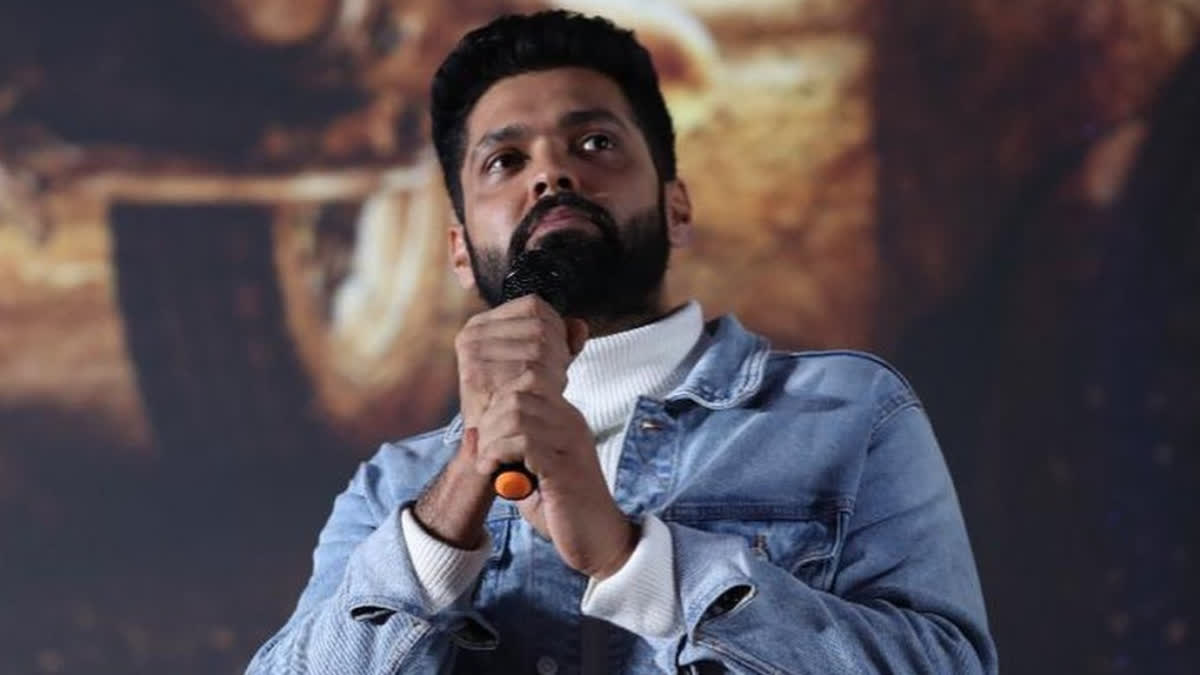Hyderabad: The Kannada film industry has been left reeling after actor, director, and producer Rakshit Shetty took to social media platform X to announce the release of his latest web series, Ekam, on his own platform. The surprising move has sparked widespread curiosity, with many wondering why no major OTT platform was willing to buy the series.
Rakshit Shetty, who has been on a roll with back-to-back hits like 777 Charlie, Sapta Saagaradaache Ello - Side A, and Sapta Saagaradaache Ello - Side B, has built a reputation for creating content-driven films that resonate with audiences. His debut in 2010 marked the beginning of a successful journey, with Kirik Party being one of his most notable works. However, the lack of interest from OTT platforms in his web series has raised eyebrows.
In a post on X, Rakshit Shetty shared the journey of Ekam, which began in 2020. Despite the initial excitement, the project was derailed by the pandemic COVID-19.
"It was chaotic and frustrating," he wrote. However, the team persevered, and by October 2021, the final cut was ready. Rakshit Shetty was thrilled with the outcome, but his enthusiasm was short-lived. The search for a suitable OTT platform proved to be an uphill battle, with the team facing familiar roadblocks at every turn.
Despite facing setbacks, Rakshit Shetty has boldly decided to release Ekam on his own platform, allowing the audience to decide its worth. He wrote, "I think the audience deserves a chance, and the right to decide the worth of any content. So we decided to bring Ekam to you, on our own platform. You might love it. You might hate it. But I guarantee that you cannot dismiss it. It's a one-of-a-kind attempt that needs to be acknowledged & applauded. I hope you enjoy it as much as we loved making it."
Industry insiders have revealed that Rakshit Shetty's experience is not the sole one. Many filmmakers have faced similar challenges in securing OTT deals, with some even suggesting that the situation is more dire for lesser-known creators. This raises important questions about the current state of the industry and the role of OTT platforms in promoting regional content.
Director Anup Bhandari, who helmed Vikrant Rona, shared his insights on this issue. According to him, a recent meeting with an OTT platform revealed that they are now exploring Kannada content, but their hesitation stems from the performance of previous films and the potential pros and cons of investing in a particular project.
Bhandari acknowledged that before 2022, there was a lack of enthusiasm among OTT platforms to purchase Kannada content without a prominent star. Although 2022 was a successful year for Kannada cinema, 2023 saw a decline, which corrupted the confidence in Kannada content, leading to poor business for OTTs.
In contrast, OTT platforms have acquired Malayalam, Hindi, and Tamil content in bulk, a trend that has not been replicated with Kannada content. Director Hemanth Rao, known for the film Sapta Saagaradaache Ello, offered a more candid assessment of the situation. He expressed his puzzlement over the reluctance of OTT platforms to invest in Kannada content, citing the cosmopolitan nature of Karnataka, where films in various languages, including Tamil, Hindi, Telugu, and Malayalam, have performed well.
Rao argued that the local language identity has taken a backseat, reflected in the business dynamics. He suggested that when major players like Netflix or Amazon acquire Telugu films, they observe that subscriptions in Bengaluru or Karnataka are not decreasing, but rather increasing. "The OTT content buying patterns have completely changed now," he wrote.
The Kannada film industry, although smaller in scale compared to its southern counterparts, has been making waves with its recent releases such as Kantara, KGF, Vikrant Rona, and 777 Charlie, which have resonated with audiences across the country. However, the question remains as to whether the industry's storytelling and writing can hold its own in the competitive OTT content landscape. According to Anup Bhandari, the answer lies in creating stronger content that caters to the distinct preferences of OTT viewers.
Bhandari believes that the industry is currently facing a shortage of writers and directors, which is further worsened by the limited number of bankable stars. To overcome this, he emphasises the need for consistent delivery of high-quality content that resonates with the audience. He draws inspiration from the Malayalam film industry, which has successfully transitioned to producing smaller, yet impactful films that have gained massive popularity. This, he believes, is a result of the industry's long-term efforts to cultivate an audience that appreciates sensible cinema.
However, director Hemanth Rao highlights a more pressing concern, which is the inadequate representation of the Kannada film industry on OTT platforms. He laments that these platforms lack a deep understanding of the industry, failing to recognise the talent and good work being done in Karnataka. This lack of representation is all the more glaring given the state's population of six crore people.
Rao shares his personal experience of struggling to get his films acquired by OTT platforms, despite multiple attempts. He expresses disbelief that even today, the top 10 films on a prominent OTT platform are dubbed, non-original Kannada films, with no interest shown in acquiring new, original content. This lack of support from OTT platforms is a significant hurdle for the industry, which is already grappling with the challenges of producing quality content.
The director stated that the Kannada film industry faces a significant challenge due to its lack of representation on OTT platforms. This absence has resulted in a major obstacle for the industry. Rao highlights that filmmakers must now take proactive steps to promote Kannada content, and audiences also have a crucial role to play in this endeavour. He explains that each OTT platform has a designated person responsible for a specific industry, who possesses in-depth knowledge of the industry and makes decisions based on economic and viewing patterns.
Unfortunately, the Kannada film industry lacks such representation among major OTT players. Consequently, the responsibility falls on filmmakers and audiences to ensure that Kannada content is noticed. Rao stresses that the stakes are higher for the Kannada film industry, and it is essential to produce exceptional films that surpass others in quality. Only by doing so can the industry demonstrate its business potential and avoid being overlooked. By creating outstanding films, the industry can prove its worth and attract attention from OTT platforms.



